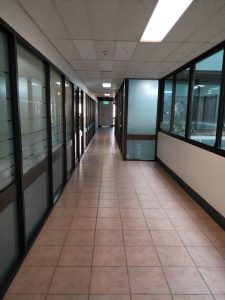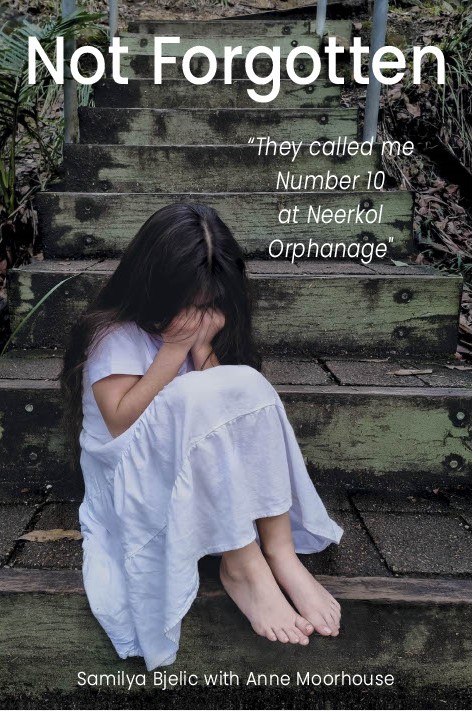I mourned my anonymity.
I met June Stevens 35 years ago at the beginning of my journey to become a psychologist, and now I have four weeks until I retire. I was 30 years old, newly married, and had just moved from Sydney to Nowra on the South Coast of New South Wales. Nowra was the smallest community I had lived in and I felt uncomfortable with my newly discovered public visibility. People I met immediately placed me on the correct branch of the Moorhouse family tree – “Oh you’re Rhonda and Arthur’s youngest son’s wife! “Are you Owen or Arthurs’s new daughter-in-law?” “We heard Jenell had a new sister-in-law”.
I felt both welcomed and alienated by strangers deftly placing me in the family system. It was as if they knew something I wasn’t privy to. For the first time I understood why people dressed up to go to the supermarket as I would undoubtedly run into some matriarch of the community there. For a while, I felt unable to pop down to the shops in my favourite daggy t-shirt and shorts. I mourned my anonymity.
Free University
The move to Nowra was part of our plan to start a family. After we made the decision, I discovered that I was eligible to go to university – for free! As a teenager in New Zealand, I failed the equivalent of grade 12 and university was wiped as an option for me. In Sydney, I had just completed a Diploma in Personnel Management – 2 nights a week for 3 years through the TAFE system, while working full time. I was bursting with pride at this achievement.
Completing the course unexpectedly provided me with entry into university and 6 months off my degree. Even though I was a New Zealander I was still eligible for the free study, and I was even eligible for a student payment as I’d only gotten married that year. I would lose it the next year as a “wife”! The girl who failed school could go to university. So after we moved to Nowra I made the 160 km round train trip to Wollongong university, 3 times a week and began studying psychology. Thank you, Gough Whitlam
June, and the Lifeline Telephone Counselling course
I only knew my husband’s family in this small town and had limited time and opportunity to make friends. I was definitely lonely. I discovered the Lifeline Telephone Counselling course was offered in Nowra. The course lured me with the hope of real-world experience to accompany my academic studies and access to a community of like-minded people. I’m sure the confidentiality and secrecy surrounding being a Lifeline telephone counsellor was also part of the attraction.
June Stevens was the course facilitator. Even though she knew all the Moorhouses, I felt seen by June. It was June who taught me how to listen. It was June who introduced me to the unconditional positive regard of Carl Rogers. It was June who facilitated my unexpected self growth through the course. It was June who infused my heart with empathy and respect for others which I carried forward. My clients and I benefited from June’s work.
A bookend to my career as a psychologist
 I left Nowra 30 years ago and have not seen June on my visits back. My parents-in-law see her regularly and I know I have been a topic of conversation. Last week, a month out from my retirement, my book Not Forgotten: they called me number 10 at Neerkol orphanage was given to June, who is now 90 years old. The book is the culmination of my career as a psychologist and provides a wonderful bookend to my career. It gives me great pleasure to see the finale of my life as a psychologist held by June, who was present way back in the beginning. I hope she sees the ripple of her work through the pages.
I left Nowra 30 years ago and have not seen June on my visits back. My parents-in-law see her regularly and I know I have been a topic of conversation. Last week, a month out from my retirement, my book Not Forgotten: they called me number 10 at Neerkol orphanage was given to June, who is now 90 years old. The book is the culmination of my career as a psychologist and provides a wonderful bookend to my career. It gives me great pleasure to see the finale of my life as a psychologist held by June, who was present way back in the beginning. I hope she sees the ripple of her work through the pages.

 yton later told me she felt great pride and satisfaction in being able to bring my image to life, knowing Samilya and I could now hold our book in our arms with the burst of pride I had hoped for.
yton later told me she felt great pride and satisfaction in being able to bring my image to life, knowing Samilya and I could now hold our book in our arms with the burst of pride I had hoped for.
 When I started talking with Samilya and playing with the idea of writing her story I envisaged a historical novel. My fantasy included crafting turbulently romantic scenes and bold acts of heroism. I soon realised that this was not the pathway for recounting the abuse and neglect that had been foisted on Samilya. I needed to place Samilya’s story in a historical context and provide a psychological overview of the impact of trauma on her life. The reality became hours of library and internet research and ploughing my way through tombs of government documents.
When I started talking with Samilya and playing with the idea of writing her story I envisaged a historical novel. My fantasy included crafting turbulently romantic scenes and bold acts of heroism. I soon realised that this was not the pathway for recounting the abuse and neglect that had been foisted on Samilya. I needed to place Samilya’s story in a historical context and provide a psychological overview of the impact of trauma on her life. The reality became hours of library and internet research and ploughing my way through tombs of government documents. I am blessed to be surrounded by a group of intelligent, educated, thoughtful readers in my life and so I reached out for help – I asked for feedback on my writing. Handing over my draft manuscript was terrifying. Here was my best – what if it wasn’t enough?
I am blessed to be surrounded by a group of intelligent, educated, thoughtful readers in my life and so I reached out for help – I asked for feedback on my writing. Handing over my draft manuscript was terrifying. Here was my best – what if it wasn’t enough?  With great joy this weekend Samilya and I presented our reviewers with a signed copy of our book
With great joy this weekend Samilya and I presented our reviewers with a signed copy of our book With both trepidation and excitement, Samilya and I launched our book Not Forgotten: They called me number 10 at Neerkol orphanage at
With both trepidation and excitement, Samilya and I launched our book Not Forgotten: They called me number 10 at Neerkol orphanage at  The launch took place after the volunteers monthly lunch. Before we even had the books ready for sale we were besieged by Samilya’s colleagues and friends wanting a copy. Everyone clamoured for Samilya to sign their copy.
The launch took place after the volunteers monthly lunch. Before we even had the books ready for sale we were besieged by Samilya’s colleagues and friends wanting a copy. Everyone clamoured for Samilya to sign their copy.


 Just released
Just released

 The quote resonated with me. I am about to step into the arena. I will be vulnerable and exposed as I present the best of me to the world in the form of a book. Why wouldn’t I feel some fear? There will always be critics in the audience, both real and imagined. Brene urges us to reserve a seat for the four critics who will undoubtedly turn up.
The quote resonated with me. I am about to step into the arena. I will be vulnerable and exposed as I present the best of me to the world in the form of a book. Why wouldn’t I feel some fear? There will always be critics in the audience, both real and imagined. Brene urges us to reserve a seat for the four critics who will undoubtedly turn up.
 Cardinal Pell Sentenced!
Cardinal Pell Sentenced!